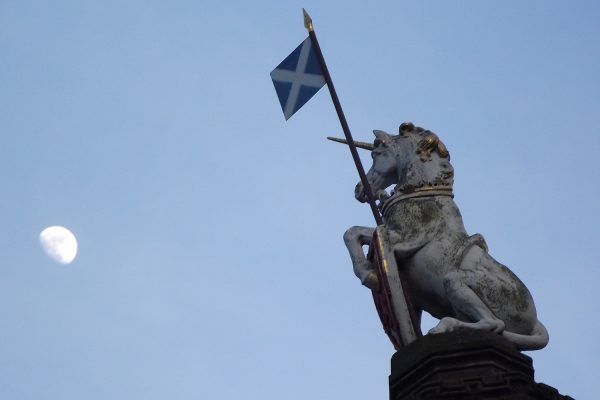
Scottish public opinion is shifting in favor of independence with several recent polls giving the separatists a 1- to 7-point lead.
Independence lost in the 2014 referendum by 10 points, but Britain’s exit from the European Union, and the growing likelihood that it will end the year without a trade deal to replace its access to the European single market, has many Scots wondering if they might not be better off leaving the UK in order to rejoin to EU.
The answer is probably still no.
Integration
I sympathize with the proposition. Brexit is a reactionary cause, premised on the fantasy that Britain will be better off alone than together with its allies and friends in Europe. Most Scots are liberal, progressive and social democratic. They may feel more at home in Europe than in the United Kingdom.
But they are also more integrated with England and the other countries of the UK than they are with continental Europe.
- Nearly two-thirds of Scotland’s non-oil exports go to the rest of the UK, accounting for 30 percent of Scotland’s economic output. Just 16 percent of its exports go to the EU.
- The EU can allow a semi-open border between Northern Ireland (population: 1.9 million) and Ireland (6.5 million), but one between England (56 million) and Scotland (5.5 million) is probably out of the question. An independent Scotland would have to choose between the EU and the UK market.
- The Scottish government spends £1,200 more per resident per year than the rest of the UK but taxes £400 less per person. The British government makes up much of the difference. Without that subsidy, Scotland would need to either cut public spending or raise taxes — or more likely both.
- Scottish nationalists argue oil revenues, which now flow to London, could plug the hole. But those have fallen from around £10 billion per year between 2005 and 2012 to under £1 billion as a result of low oil prices.
- An independent Scotland’s defense would amount to little.
- The process of joining the EU as an independent nation could take several years. Scotland would need to adopt the euro.
- Rejoining NATO could be quicker, since there are fewer conditions and the alliance needs Scotland to be able to close the GIUK gap. But there would still be a period during which Scotland would be formally without allies.
Advantages
There might be advantages in the long term:
- Edinburgh, already a mid-sized financial center, could attract banks, insurance and investment companies from London that might otherwise relocate to Amsterdam, Frankfurt, Luxembourg or Paris to remain in the EU.
- Independence would allow Scotland to remove Britain’s nuclear submarines from Faslane, whose presence has long been a sore in the eyes of many Scots.
Risks
But even those advantages come with risks:
- The assets of Scotland’s financial sector are already worth twelve times (PDF) the region’s GDP. Would an independent Scottish government be able to bail out its banks if they threatened to collapse?
- Decommissioning the Faslane Naval Base would destroy some 11,000 jobs. It would also throw doubt on Scotland’s utility as a NATO ally.
